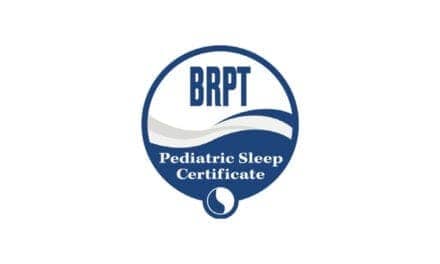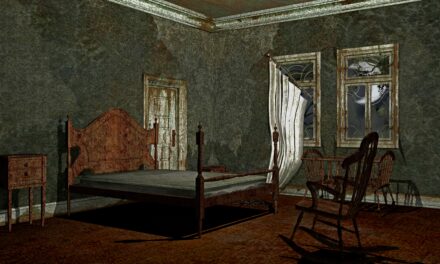 |
For the past several years, since the Commission on Accreditation of Allied Health Education Programs (CAAHEP) recognized polysomnography as a separate and distinct field, an often-contentious cloud has surrounded those who work in the field of sleep. This has been due to a collision of two disciplines, polysomnography and respiratory care. In every medical field, there are overlapping areas of care and responsibility that are generally referred to as someone’s “scope of practice.”
As early as 1998, Medicare recognized sleep as being separate from respiratory therapy. In August 2002, the National Commission of Certifying Agencies recognized and established the validity of the RPSGT credential. In April 2003, CAAHEP approved the formation of the Committee on Accreditation for Polysomnography (CoAPSG), which would oversee the development of educational programs. In May 2003, the Association of Polysomnographic Technologists, now known as the American Association of Sleep Technologists (AAST), issued a position paper seeking professional recognition as a distinct field. In June of that year, the American Association for Respiratory Care (AARC) issued its position that sleep was part of the RT scope of practice.
I have been a respiratory therapist for nearly 30 years. I remember the arguments, hard feelings, and downright rancor that occurred when RTs challenged nurses over scope of practice issues as we fought for recognition of our special skills and professional licensure state by state. Now, it seems the same fight is building. But this time, the RTs are fighting to prevent a new and developing field from gaining recognition.
We have seen the respiratory care boards issue cease and desist orders and citations and threaten huge fines against RPSGTs and sleep technicians who are not RTs, as well as their employers, for “practicing respiratory therapy without a license.” This effectively would eliminate from the job market anyone who is not an RT. In some states, when the question was raised to ask for an exemption from the RT practice act, the respiratory care board, made up of RTs, refused to consider the position of the AAST, choosing to follow the AARC position for “patient safety reasons.”
In June of last year, the AARC President, Toni Rodriquez, EdD, RRT, stated that the growing legislative efforts in the field of polysomnography are marginalizing the licensed respiratory therapist. The AARC has offered its resources and support to state affiliates to prevent the licensing of sleep technologists in that state. The AARC will support legislation that places the field of sleep under the control of respiratory therapists.
The AARC issued the following “litmus test” to assess any PSG licensure legislation.
- Does the proposed legislation explicitly exempt the licensed respiratory therapist from obtaining further education or training in polysomnography? Reasoning: As it has been for decades, sleep testing and treatment continues to be part of the respiratory therapy scope of practice.
In other words, an RT would never have to obtain any training or provide any evidence of competency in polysomnography to perform PSG testing.
- Does the proposed legislation explicitly exempt licensed respiratory therapists from additional examinations and professional credentials in polysomnography? Reasoning: Licensed respiratory therapists must meet the education and testing requirements set forth by the state as respiratory care practitioners and are therefore practicing under the scope of practice that includes sleep testing and treatment.
RTs would never be required to take the BRPT exam to become an RPSGT. The AARC, in making a claim of “scope of practice,” is inferring that RTs are fully trained and educated in sleep medicine.
- Does the proposed legislation require physician delegation for the noncredentialed individuals? Reasoning: Physician delegation means that individuals who provide health care services and who are not licensed or competency tested provide these services “off the physician’s” license. This is how respiratory therapists, prior to licensure, could provide an array of health care services to patients. Because nonlicensed, non-competency-tested individuals are delegated responsibility by the physician under the physician’s license, it is incumbent upon the physician to assure and assume responsibility for the quality and safety of services performed by these individuals.
This is a standard for everything medical. The physician is allowed to empower anyone to perform procedures under the physician’s license. Oddly enough, the AARC is actively fighting allowing persons working under a physician’s license, from performing pulmonary function testing in a physician’s office if they are not RTs.
- Does the proposed legislation recognize other nationally accepted competency examinations and professional credentials in addition to the Registered Polysomnographic Technologist (RPSGT) credential? Reasoning: It is standard language in health licensure laws to provide the licensure regulatory boards or committees the flexibility of assessing the merits of other accrediting, examination, or educational entities as the profession evolves and these new legitimate entities emerge and are established. This avoids the situation where one entity has a monopoly on the education or testing of the profession or occupation.
The only credentials in sleep are the D-ABSM and RPSGT. This would allow the AARC to develop a “specialty” exam in sleep to bypass the BRPT exam. I do not think the AARC would allow anyone to develop an RT specialty exam for nurse’s aides, to allow issuance of a license to practice, any more than the AMA would.
- Does the proposed legislation limit, to a maximum of 36 months, the time an individual—who does not have the RPSGT credential and who is working under physician delegation—may practice and continue to provide sleep services? Reasoning: It is not in the interests of patient safety and quality of care to permit, in perpetuity, an individual who has not documented competency via a valid examination to continue to provide that polysomnography portion of the respiratory care scope of practice. A time frame for the documentation of competency and obtaining the RPSGT credential must be mandated by law.
This is the one point I can fully agree with; there must be a time limit for taking and passing the BRPT exam in order to continue working in the field of sleep. I would reduce the time to 24 months. The AARC wants everyone to become RPSGTs, except RTs. In the early days of RT licensure and before the days when RT education programs were fully established, thousands of persons working in respiratory care, without formal education, were “grandfathered” into the field and granted a respiratory care practitioner license.
The AAST has recognized that some areas of practice overlap, but that polysomnography is separate and distinct from respiratory care. In medicine, it would be difficult to find any field that did not overlap in some areas with another field. The American Academy of Sleep Medicine has encouraged and mandated changes that will improve the educational level of persons working in sleep, including RTs who have chosen to make a career change. Although I am still a licensed respiratory care practitioner, I did make a career change when I entered the sleep field 18 years ago.
The respiratory care boards have stated that they are attempting to protect the public from potential harm caused by untrained or uneducated persons performing CPAP or oxygen titrations. Do they not see any potential harm or waste of resources and money that could occur when an untrained or undereducated RT attempts to perform polysomnography and titrate CPAP? Most RT programs include CPAP in a mechanical ventilation class, but seldom teach students how to perform a titration.
Working in the field of sleep medicine requires specialized training and knowledge. The AARC has taken the position that sleep medicine is part of a respiratory therapist’s training and practice. The AARC has asked the NBRC to develop a “specialty” exam for therapists that would be “somewhat shorter than the current 200-items BRPT examination” as it will not cover items that have been covered in previous exams. Will there be two different exams, one for CRTs and one for RRTs?
The NBRC has stated that the proposed sleep specialty exam for respiratory therapists is not designed to compete with or replace the current BRPT exam, but what role is it intended to play? For years RTs have taken the BRPT exam; why is there suddenly a need for the AARC to ask the NBRC to create a specialty test?
Time limits for educational requirements have been set by the AASM and the BRPT. Beginning in June 2008, all candidates for the RPSGT exam must submit proof of completion of an ASTEP education program or CAAHEP-approved education program in polysomnography.
In several states, RPSGTs are now licensed, under the Board of Medical Examiners or Board of Healing Arts, to perform polysomnograpy including CPAP titration and use of oxygen during testing. In each case, the legislation was fought vigorously by the AARC. In some states, attempts are being made to modify the current Respiratory Care Act to place sleep under the control of respiratory care before sleep techs can organize and request legislation.
Sleep technology currently occupies the position RT was in 30 or so years ago. It sometimes seems to be David versus Goliath all over again, but this time the AARC is Goliath. Maybe it is time to ask for legislation that will ensure a level playing field, requiring those working in sleep to take and pass the same exam and standards to become RPSGTs. We should not settle for a lesser standard or abbreviated specialty test; the BRPT has set the bar and is the gold standard. As Dr William Dement said, “Sleep belongs to those who love it.” I am proud of being an RT and proud to be an RPSGT in the field of sleep medicine.
Henry L. Johns, BS, RPSGT, CRT, CPFT, has worked in sleep medicine for more than 18 years (and more than 35 years in respiratory therapy). He is director of sleep and respiratory services for Pulmonary & Sleep Associates of Topeka, Kan. Contact him through [email protected].




